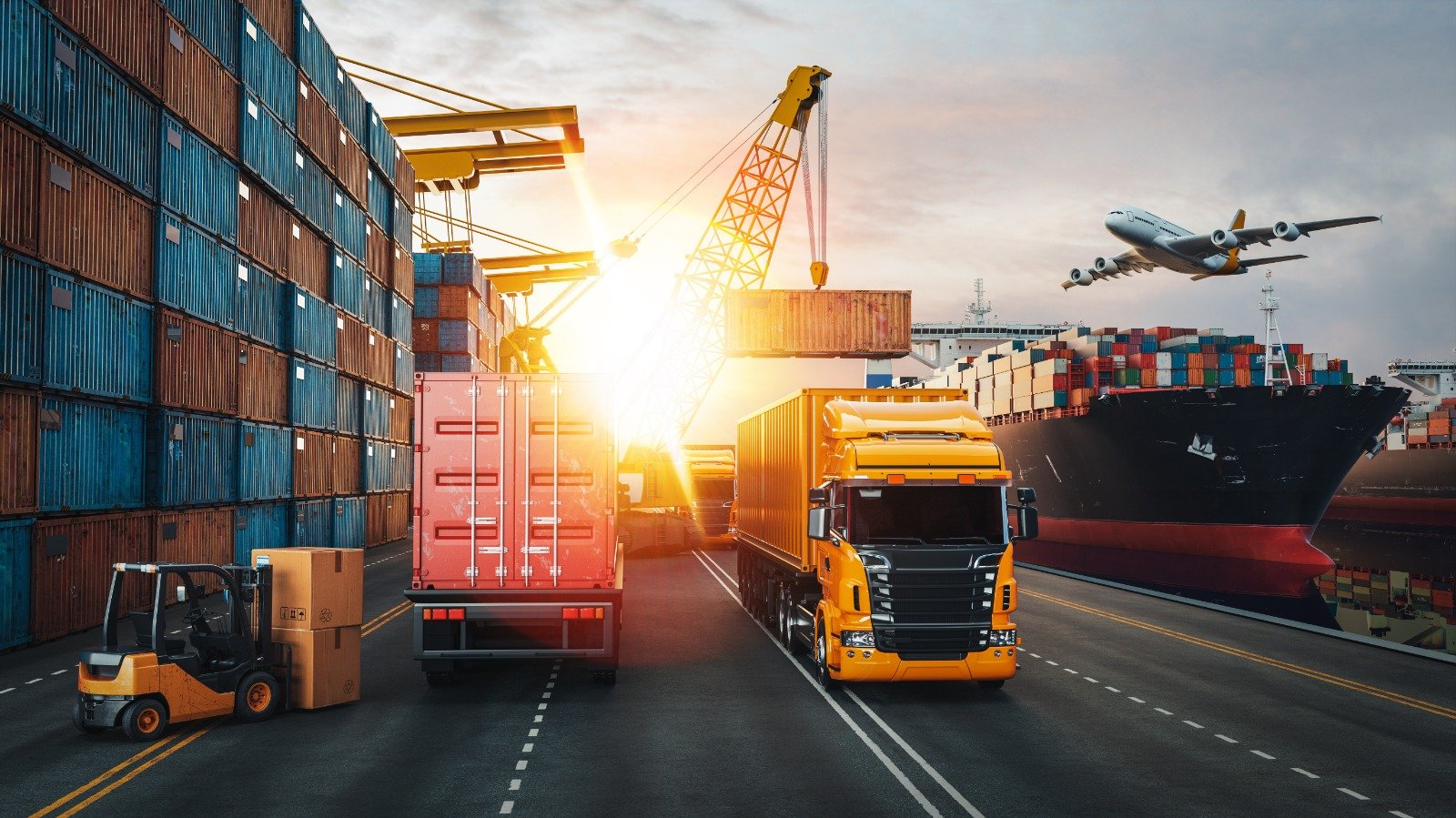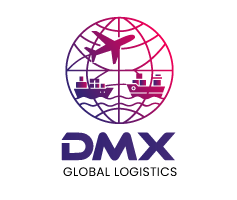
Shipping to GCC Countries? Here’s What You Need to Know
Moving Goods from Dubai to India? Here’s What You Need to Know
When you ship to the Gulf Cooperation Council (GCC) countries — the UAE, Saudi Arabia, Bahrain, Kuwait, Qatar, and Oman — you’re entering a dynamic market with its own unique logistics landscape. From facilities and rules to electronic customs clearance and partner tactics, this is your real world manual for shipping to GCC nations successfully.
1. Familiarize Yourself with the Region’s Landscape
The GCC isn’t one nation — it’s six nations with connected trade routes, harmonized customs codes, and booming import markets. A unified, 12-digit HS code system spans the entire region, reducing classifications and preventing errors at the border. A single point of entry, such as Jebel Ali in the UAE, can be an entry point to many GCC destinations.
2. Start with the Right Entry Point
- UAE: Think infrastructure giant. From high-end ports like Jebel Ali and Khalifa Port to advanced free zone logistics, it’s the fastest way in the door.
- Bahrain: Offers strategic trade advantages — including duty-free importation of U.S. products under its Free Trade Agreement and reduced cost of logistics. Ideal for redistribution on the regional level.
- Saudi Arabia: Largest market but slower, more bureaucratic. Higher compliance burdens, but massive opportunity if you’re ready to navigate it.
Pick a “beachhead” and expand outward. Trying to break into every market at once is rarely the smartest approach.
3. Adhere to Custom Rules & Documentation
Every country in the GCC has its own set of rules and protocols, particularly for customs. Some of the things to be mindful of are:
- Food, pharma, and sensitive items require extra approvals. As an example, food requires the marking with Arabic expiry/production dates and localized Halal certification where required.
- Saudi Arabia will clear customs in 7–21 days if not pre-cleared before departure.
- Documentation for export: Halal certificate, certificate of origin (certified), conformity markings like the GCC “G Mark” in toys or electrical equipment, product registration (e.g., Saudi Saber system), and correct invoice and packing list.
Make sure your documents—commercial invoice, bill of lading, packing list—are all GCC customs compliant to prevent delay and fine.
4. Utilize Free Zones & Bonded Warehouses
Why start from scratch? Leverage the free zones of the region to control your storage strategically and distribute efficiently.
- Postponement of duty until products arrive at local markets.
- Tax advantages, such as possible 0% company tax and zero VAT on transit carriage of goods.
- Stocking centrally and re-exporting to many GCC countries, with a seamless distribution network.
NB: To sell on the UAE mainland, you’ll need a licensed onshore partner or trade license, even if your stock is in a free zone.
5. Select Regional Partners with Care
Don’t go it alone. Shipping to GCC is easier with partners who are experts in:
- Customs nuances and subtleties of compliance.
- Paperwork, HS-code reconciliations, and pre-clearance processes.
- Transport infrastructure nuances — like the Saudi landbridge or evolving GCC rail system.
Regional experts within forwarders will cost you less, reduce delays, and assist you in growing smartly.
6. Technologically Advanced Shipping: Digitization Is the Way
Old methods won’t work in the GCC. Digital infrastructure is a differentiator:
- e-Customs clearance portals: Samples include Dubai Trade or Saudi’s FASAH. Papers must be in accepted electronic formats (XML, API, etc.).
- ERP/EDI systems: Handle invoices, customs filing, and orders in both Arabic and English, handle VAT by region, and integrate with leading regional retailers and 3PLs.
A solid digital back-end is not a luxury — it’s your business anchor.
7. Build for Scalability, Start Smart
This is what successful exporters and suppliers typically do:
- Establish in a regional free zone hub — UAE or Bahrain.
- Hire a 3PL or distributor in every target country where necessary.
- Streamline customs and logistics readiness using electronic solutions.
- Enter new GCC markets only after preliminary demand is confirmed.
This maintains initial investment to a minimum, maintains lean costs, and allows you to learn quickly.
Final Thoughts
Shipping to GCC countries is not so much about moving goods — it’s smart logistics, strategic positioning, and readiness for tech. By starting with the right point of entry, following country-by-country regulations, capitalizing on free zone advantages, and leveraging technology-enabled systems, all you have to do is do it properly. Choose the right logistics partner that you don’t have to worry later.
If you’re searching for an experienced partner who can handle the complexity in shipping your cargo into GCC nations, DMX Logistics will be there to help. With decades of experience as well as strong regional networks and a commitment to quality, DMX ensures your cargo arrives at its destination in a smooth in a safe and timely manner. time.
If you’d like to learn more about our complete variety of logistics solutions look at the service page.
Are you ready to begin your shipping today? Get in touch with us now and let’s start making your shipment to GCC countries a breeze.
But prior to shipping your goods across the Arabian Sea, here is what you would prefer to know in order to make hassle-free and convenient cargo delivery.
Choose the Ideal Cargo Service Provider
Selecting a reliable logistics partner is the key to ensuring smooth and efficient shipping to India. All the providers are not the same regarding service quality, pricing transparency, or delivery time. What you need to look for are firms with:
- Effective UAE-India network
- Real-time tracking facilities
- Price transparency
- Insurance coverage
- Experience and knowledge to handle the kind of cargo you intend to ship (personal, business, fragile, etc.)
Find the Types of Cargo Services Provided
There’s no one-size-fits-all freight solution. The best option depends on what you’re sending and how quickly it needs to arrive — allowing you to choose and tailor the service to fit your specific shipping needs.
- Air Cargo: Suitable for expedited or time-critical shipments. It is fast, reliable, and suitable for documents, electronics, and lighter weights.
- Sea Cargo: Affordable in bulk load. Suitable for heavy items, furniture, and commercial shipments. Take Full Container Load (FCL) or Less-than-Container Load (LCL) depending on the volume of cargo.
- Door-to-Door Services: Suitable for people moving or companies who do not want to handle customs clearance and port handling.
- Courier Services: For small, valuable items such as passports, legal documents, or gifts.
The appropriate method depends on how urgent, big, and expensive your shipment is.
Know Documents Required
Sending them abroad isn’t only a matter of how you wrap them — there’s plenty of paperwork to be done. Ensure you have:
- Your passport copy or Emirates ID (personal shipments)
- Commercial invoice (business consignments)
- Packing list
- Importer Exporter Code (IEC) if business consignment
- Bill of Lading or Airway Bill
- NOC or clearance certificates for certain restricted products
A well-established cargo company will take care of all these formalities, as per UAE and Indian customs regulations.
Know India’s Customs Regulations
Indian customs also have a few regulations for incoming cargo. Most of the common goods pass through without any issues, but some require permits or are not allowed at all.
These are a few things to keep in mind:
- Used electronics, narcotics, and fresh foods might require extra documents.
- Commercial exports are liable for customs duty — so budget for it.
- Personal shipments as unaccompanied baggage generally have duty-free allowance up to some amount, but beware of caps.
Having a shipping company that’s well-versed in Indian import regulations guarantees your cargo is not stranded in customs.
Packaging Matters — A Lot
Regardless of how efficient the cargo service, incorrect packing will cause flaws or delays. Employ heavy-duty weather-resistant boxes and pad your belongings suitably. Clearly label each package and include both the sender’s and recipient’s details on the outside as well as inside the box.
Double-pack delicate or valuable items and mark them as such.
How Long Does It Take?
The following is an approximate guide to delivery times:
- Air Cargo: 3 to 6 working days
- Sea Cargo: Typically takes 15 to 25 days, depending on the destination port in India and how quickly customs clearance is completed.
Seasonal peaks (e.g., festivals or year-end) can cause minimal delays, so prepare ahead anyway.
Cost Breakdown – What to Expect
The price of the cargo service from Dubai to India would depend on:
- Mode of shipping (air/sea)
- Weight and size of the cargo
- Destination city in India
- Type of service (door-to-port, door-to-door, express, etc.)
- Customs duties and handling charges
Request an all-up-front quote prior to booking, so there are no unexpected surprises later.
Why DMX Logistics is a Trusted Name
As the best shipping company in Dubai, we know that your cargo is not merely about commodities — it’s about credibility, memory, and business trust. Our cargo services from Dubai to India are as much about speed as they are about safety. We have a support team at your behest, live tracking facilities, and competitive pricing so that your cargo reaches safe — every time.
Irrespective of the fact that you are shipping personal goods to your relatives in Kerala or machinery to a warehouse in Mumbai, we have it all in order.
Final Thoughts
Shipping cargo services from Dubai to India doesn’t have to be so complex. With the right service agency, correct documentation, and some degree of planning, your cargo can move across borders efficiently and safely.
When you ship to the Gulf Cooperation Council (GCC) countries — the UAE, Saudi Arabia, Bahrain, Kuwait, Qatar, and Oman — you’re entering a dynamic market with its own unique logistics landscape. From facilities and rules to electronic customs clearance and partner tactics, this is your real world manual for shipping to GCC nations successfully.
1. Familiarize Yourself with the Region’s Landscape
The GCC isn’t one nation — it’s six nations with connected trade routes, harmonized customs codes, and booming import markets. A unified, 12-digit HS code system spans the entire region, reducing classifications and preventing errors at the border. A single point of entry, such as Jebel Ali in the UAE, can be an entry point to many GCC destinations.
2. Start with the Right Entry Point
- UAE: Think infrastructure giant. From high-end ports like Jebel Ali and Khalifa Port to advanced free zone logistics, it’s the fastest way in the door.
- Bahrain: Offers strategic trade advantages — including duty-free importation of U.S. products under its Free Trade Agreement and reduced cost of logistics. Ideal for redistribution on the regional level.
- Saudi Arabia: Largest market but slower, more bureaucratic. Higher compliance burdens, but massive opportunity if you’re ready to navigate it.
Pick a “beachhead” and expand outward. Trying to break into every market at once is rarely the smartest approach.
3. Adhere to Custom Rules & Documentation
Every country in the GCC has its own set of rules and protocols, particularly for customs. Some of the things to be mindful of are:
- Food, pharma, and sensitive items require extra approvals. As an example, food requires the marking with Arabic expiry/production dates and localized Halal certification where required.
- Saudi Arabia will clear customs in 7–21 days if not pre-cleared before departure.
- Documentation for export: Halal certificate, certificate of origin (certified), conformity markings like the GCC “G Mark” in toys or electrical equipment, product registration (e.g., Saudi Saber system), and correct invoice and packing list.
Make sure your documents—commercial invoice, bill of lading, packing list—are all GCC customs compliant to prevent delay and fine.
4. Utilize Free Zones & Bonded Warehouses
Why start from scratch? Leverage the free zones of the region to control your storage strategically and distribute efficiently.
- Postponement of duty until products arrive at local markets.
- Tax advantages, such as possible 0% company tax and zero VAT on transit carriage of goods.
- Stocking centrally and re-exporting to many GCC countries, with a seamless distribution network.
NB: To sell on the UAE mainland, you’ll need a licensed onshore partner or trade license, even if your stock is in a free zone.
5. Select Regional Partners with Care
Don’t go it alone. Shipping to GCC is easier with partners who are experts in:
- Customs nuances and subtleties of compliance.
- Paperwork, HS-code reconciliations, and pre-clearance processes.
- Transport infrastructure nuances — like the Saudi landbridge or evolving GCC rail system.
Regional experts within forwarders will cost you less, reduce delays, and assist you in growing smartly.
6. Technologically Advanced Shipping: Digitization Is the Way
Old methods won’t work in the GCC. Digital infrastructure is a differentiator:
- e-Customs clearance portals: Samples include Dubai Trade or Saudi’s FASAH. Papers must be in accepted electronic formats (XML, API, etc.).
- ERP/EDI systems: Handle invoices, customs filing, and orders in both Arabic and English, handle VAT by region, and integrate with leading regional retailers and 3PLs.
A solid digital back-end is not a luxury — it’s your business anchor.
7. Build for Scalability, Start Smart
This is what successful exporters and suppliers typically do:
- Establish in a regional free zone hub — UAE or Bahrain.
- Hire a 3PL or distributor in every target country where necessary.
- Streamline customs and logistics readiness using electronic solutions.
- Enter new GCC markets only after preliminary demand is confirmed.
This maintains initial investment to a minimum, maintains lean costs, and allows you to learn quickly.
Final Thoughts
Shipping to GCC countries is not so much about moving goods — it’s smart logistics, strategic positioning, and readiness for tech. By starting with the right point of entry, following country-by-country regulations, capitalizing on free zone advantages, and leveraging technology-enabled systems, all you have to do is do it properly. Choose the right logistics partner that you don’t have to worry later.
If you’re searching for an experienced partner who can handle the complexity in shipping your cargo into GCC nations, DMX Logistics will be there to help. With decades of experience as well as strong regional networks and a commitment to quality, DMX ensures your cargo arrives at its destination in a smooth in a safe and timely manner. time.
If you’d like to learn more about our complete variety of logistics solutions look at the service page.
Are you ready to begin your shipping today? Get in touch with us now and let’s start making your shipment to GCC countries a breeze.
Why Businesses Are Moving from Traditional Freight to Digital Freight Forwarding in 2026
Freight forwarding has always been part of global trade, but...
What Is NPCI? A Complete Guide to UAE Maritime Preload Cargo Information in 2026
Global shipping regulations are tightening, and the UAE isn't sitting...
International Shipping from Dubai for SMEs: What Small Businesses Should Do Differently in 2025
For small and medium-sized businesses, international shipping has never been...



